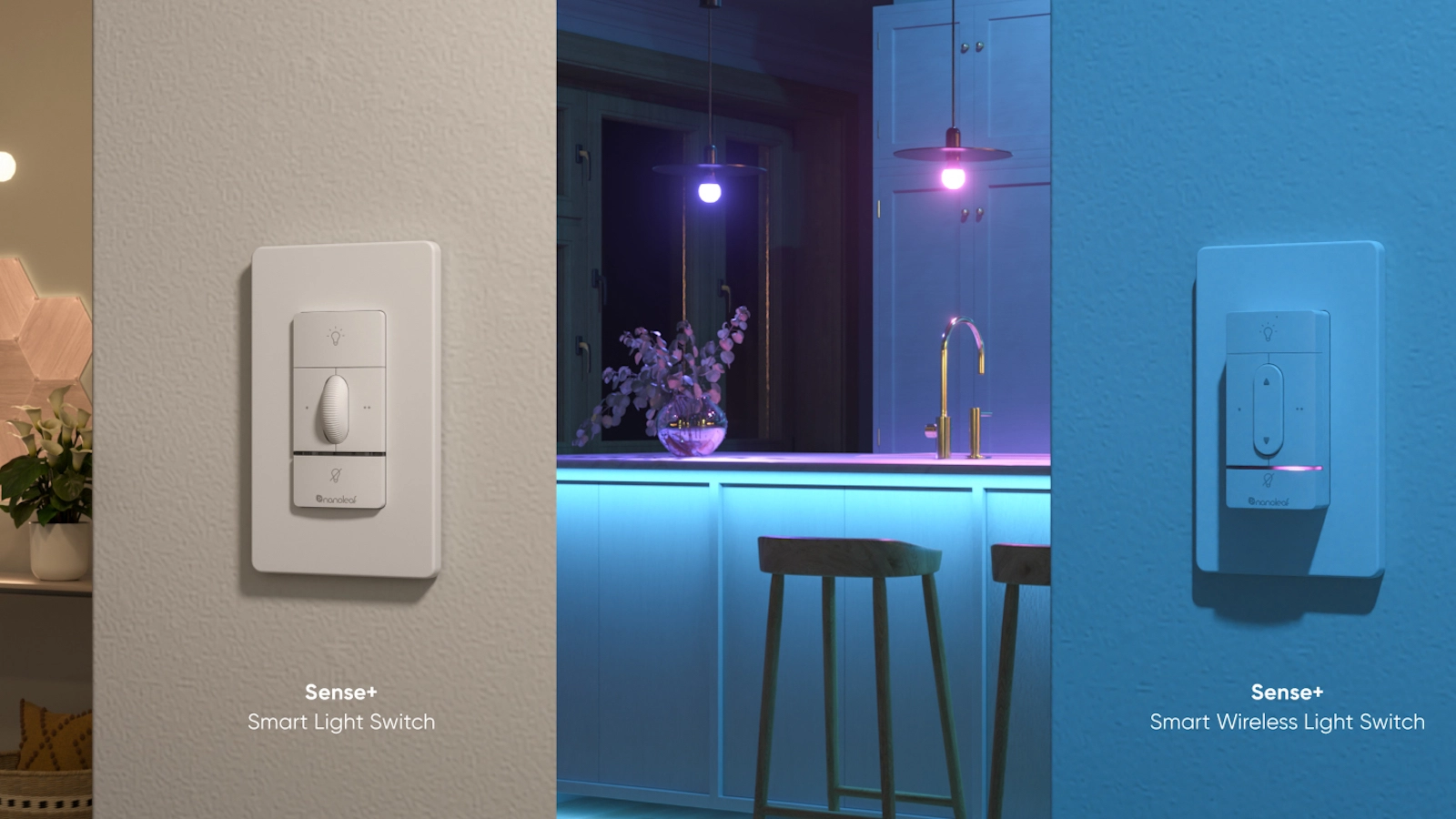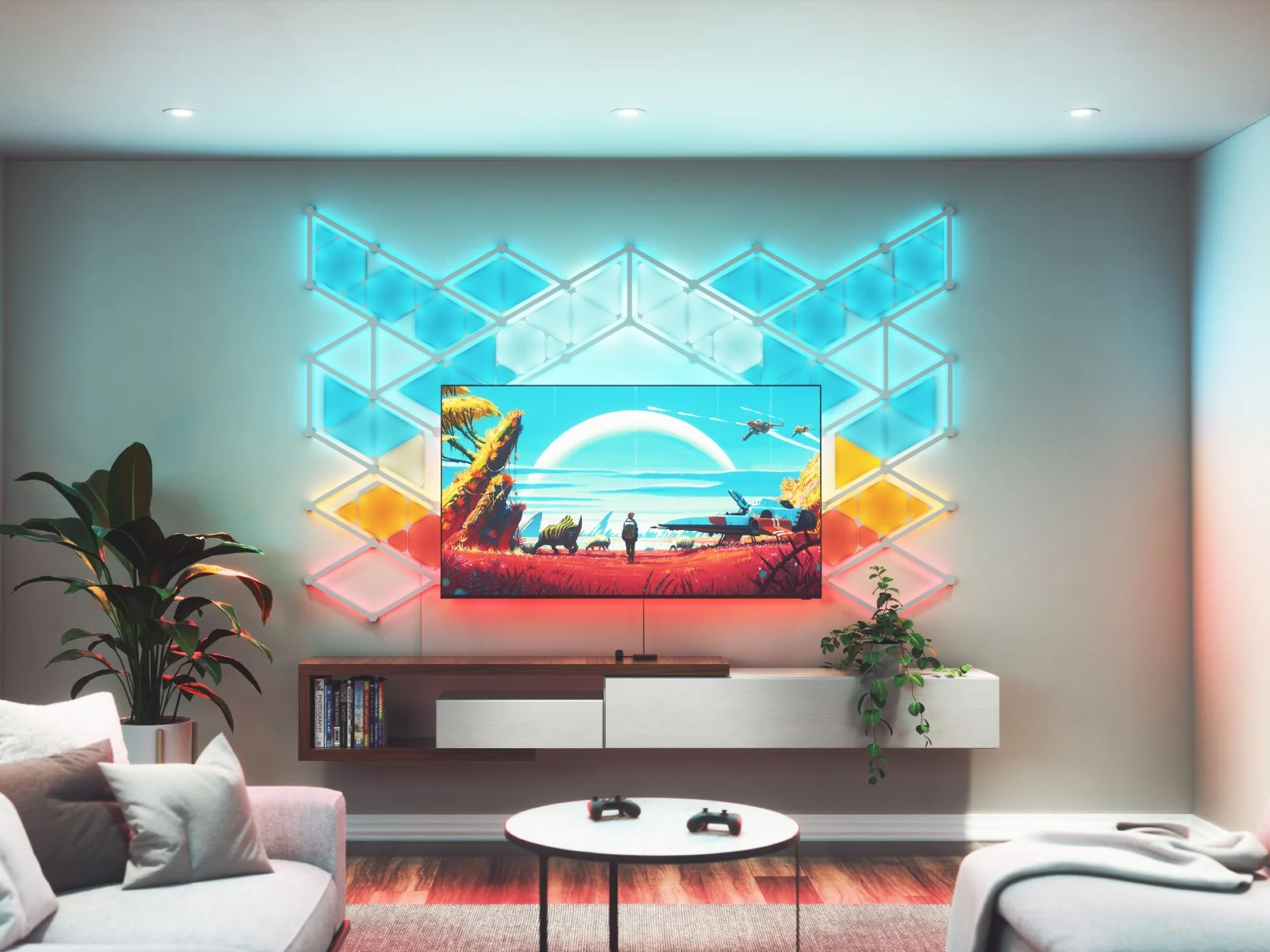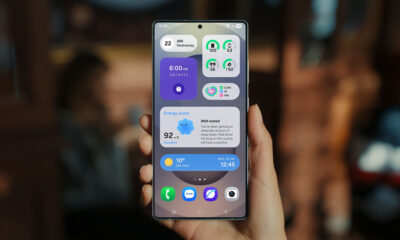News
Nanoleaf Sense+ Control Lighting Handles Automation By Itself
The smart light switches connect to a Thread Border Router known as the Nala Learning Bridge, which features an onboard assistant.

Smart devices such as light bulbs and switches have been around for a long time. These products allow you to turn lights on and off remotely, adjust colors and brightness, plus set up automatic schedules.
There is, however, a slight catch.
Until now, the scheduling part of the equation is something you’ve mostly had to handle yourself, and depending on the app in question, the experience can often be frustrating and time-consuming.
Nanoleaf aims to fix those scheduling issues with its newly announced Sense+ Control family of products. The smart device lineup consists of the Sense+ Smart Light Switch, Sense+ Wireless Light Switch, and Nala Learning Bridge. All three products are Matter and Thread enabled and feature built-in motion and ambient light detection. The Nala Learning Bridge functions as a Thread Border Router and acts as the smart home network’s hub while featuring its own ambient lighting.

As well as a router, Nala is also the name of the Nanoleaf Automations Learning Assistant. The inbuilt technology uses complex machine learning algorithms to predict a user’s routines and adjust lighting accordingly. The company claims that, “Over time, users will be able to have a truly intelligent and hands-free experience with the smart lighting in their home.”
Nanoleaf 4D

Also announced at this year’s CES 2023 was the Nanoleaf 4D, a system that synchronizes Nanoleaf lights with your TV. The system will ship with the Nanoleaf Screen Mirror Camera and a light strip featuring 50 customizable LED zones.
Using Nonoleaf’s Sync+ technology, the Nanoleaf 4D can mimic your screen’s colors and lighting patterns across all of the other Nanoleaf lights in the room, and supports pre-made scenes, including sunrises.
Nanoleaf Skylight

Nanoleaf already offers modular wall panels in its lineup, but soon, the company will add a set of square RGBW LED panels that can be arranged in different patterns on ceilings.
Named Skylight, this new product includes Nanoleaf’s screen mirroring technology, a music visualizer, and supports group scenes. Like the Nala Learning Bridge, Skylight can also be used as a Thread Board Router.
Finally, the company will also update its Essentials line to make them Matter compatible and release software updates to ensure everything works harmoniously. The Sense+ Control line, Nanoleaf 4D, and Skylight should all arrive in stores by the second half of 2023, with pricing yet to be announced.
News
Rabbit Expands Hyperlocal Delivery Service In Saudi Arabia
The e-commerce startup is aiming to tap into the Kingdom’s underdeveloped e-grocery sector with a tech-first, locally rooted strategy.

Rabbit, an Egyptian-born hyperlocal e-commerce startup, is expanding into the Saudi Arabian market, setting its sights on delivering 20 million items across major cities by 2026.
The company, founded in 2021, is already operational in the Kingdom, with its regional headquarters now open in Riyadh and an established network of strategically located fulfillment centers — commonly known as “dark stores” — across the capital.
The timing is strategic: Saudi Arabia’s online grocery transactions currently sit at 1.3%, notably behind the UAE (5.3%) and the United States (4.8%). With the Kingdom’s food and grocery market estimated at $60 billion, even a modest increase in online adoption could create a multi-billion-dollar opportunity.
Rabbit also sees a clear alignment between its business goals and Saudi Arabia’s Vision 2030, which aims to boost retail sector innovation, support small and medium-sized enterprises, attract foreign investment, and develop a robust digital economy.
The company’s e-commerce model is based on speed and efficiency. Delivery of anything from groceries and snacks to cosmetics and household staples is promised in 20 minutes or less, facilitated by a tightly optimized logistics system — a crucial component in a sector where profit margins and delivery expectations are razor-thin.
Despite the challenges, Rabbit has already found its stride in Egypt. In just over three years, the app has been used by 1.4 million customers to deliver more than 40 million items. Revenue has surged, growing more than eightfold in the past two years alone.
Also Read: Top E-Commerce Websites In The Middle East In 2025
CEO and Co-Founder Ahmad Yousry commented: “We are delighted to announce Rabbit’s expansion into the Kingdom. We pride ourselves on being a hyperlocal company, bringing our bleeding-edge tech and experience to transform the grocery shopping experience for Saudi households, and delivering the best products – especially local favorites, in just 20 minutes”.
The company’s growth strategy avoids the pitfalls of over-reliance on aggressive discounting. Instead, Rabbit leans on operational efficiency, customer retention, and smart scaling. The approach is paying off, having already attracted major investment from the likes of Lorax Capital Partners, Global Ventures, Raed Ventures, and Beltone Venture Capital, alongside earlier investors such as Global Founders Capital, Goodwater Capital, and Hub71.




















